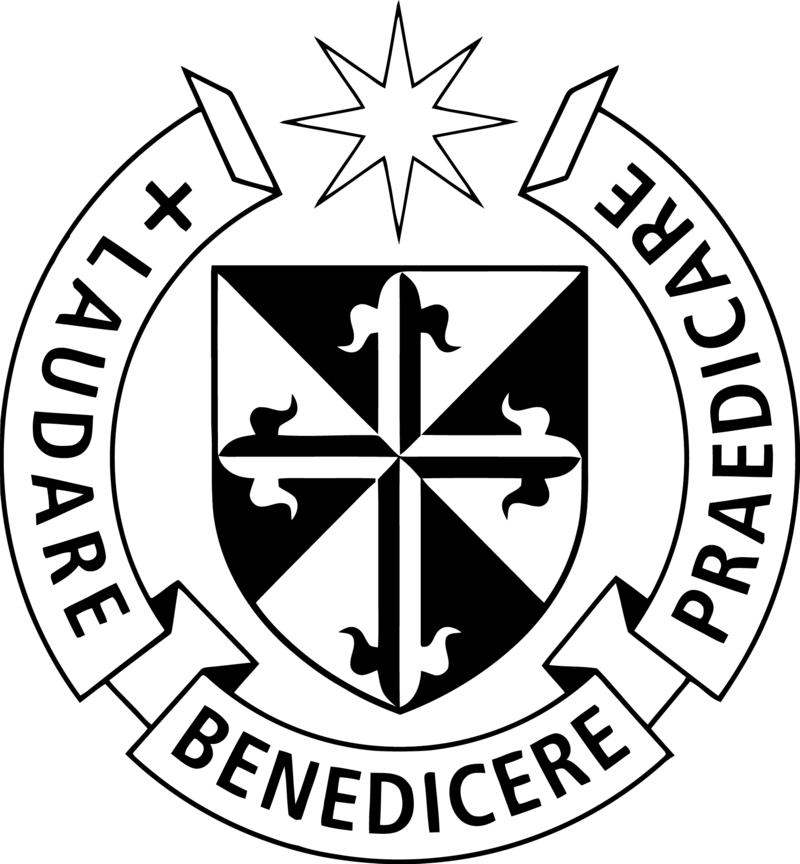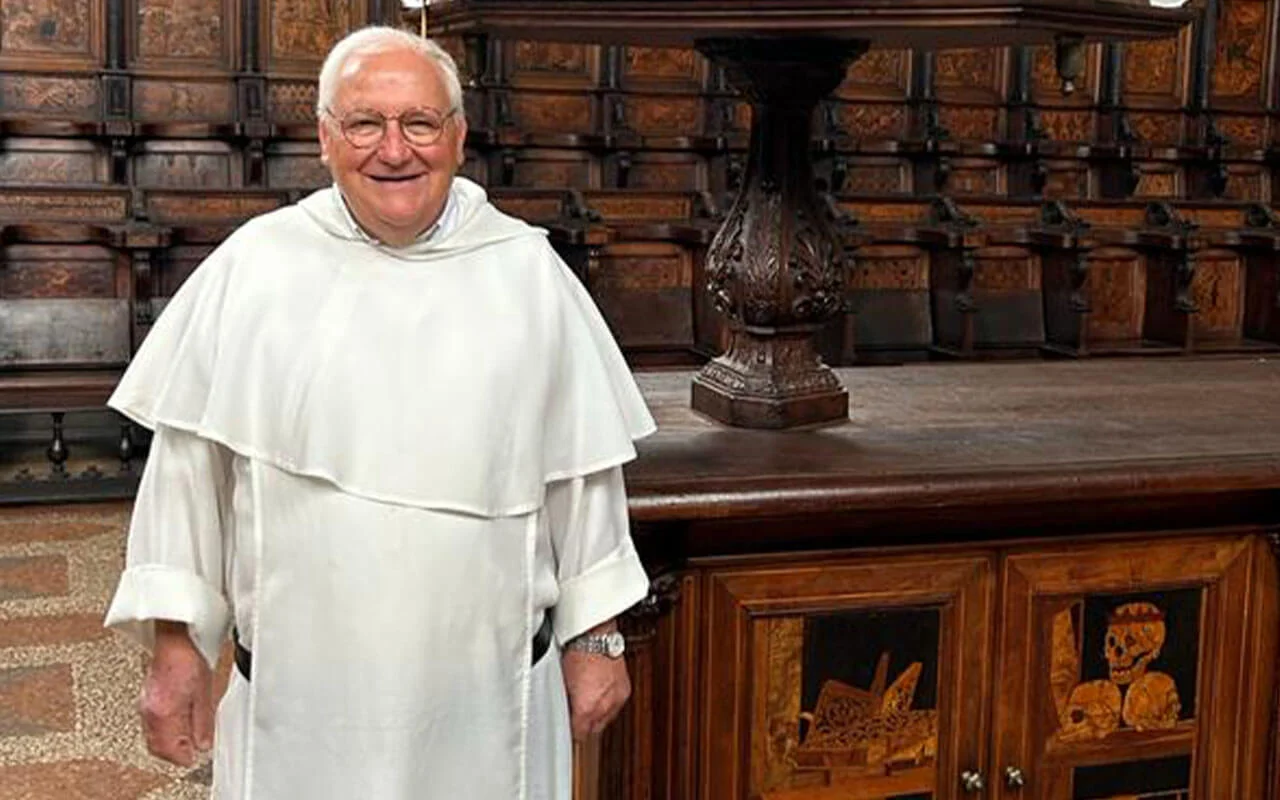Reminding today’s world suffering from violence that God has revealed himself as a God of liberation
Magister in Sacra Theologia
“Today’s world is once again suffering from a great deal of violence, not only on the battlefields but also in language, politics, human relations, even within couples and families. There is also a great lack of hope.
Jean-Michel Poffet, OP, who received the Master of Sacred Theology diploma1 of the Order of Preachers in 2023, in an interview with Ordo Praedicatorum media :
What does it mean to you to have received the Master of Sacred Theology diploma from the Master of the Order?
I was obviously very honoured that my Province had chosen to propose me for the MST and that the Master of the Order had granted it to me. The laudatio underlined the link I had always tried to forge between the study of Sacred Scripture and preaching in the broadest sense. Anything that could shed light not only on the past of the texts studied, but also on their future for the people of God. I can only be encouraged to continue in this direction.
As a master of sacred theology, how do you see the Order’s current theological contribution to the Church and the world?
Today’s world is once again suffering from a great deal of violence, not only on the battlefields, but also in language, politics and human relations, right down to the couple, the family and so on. There is also a great lack of hope. It therefore seems urgent to me to seek to bring to light the Revelation of a God who is a “friend of mankind”, a God of liberation, who showed this with Moses and above all with Jesus. And Jesus, himself wounded, shows his wounds to his disciples after his resurrection, while entrusting them with peace and forgiveness. A real humanization program…
In a context of technological revolution, how should we approach biblical interpretation?
The tools at our disposal facilitate Bible study, offering historical, archaeological and linguistic documentation. But nothing will ever replace hermeneutics: the interpretation of biblical texts in the light of faith. Not just the search for what an ancient author meant, but what an inspired text can still say for today and tomorrow. The Holy Spirit accompanies this search and this service to the Church.
What suggestions do you have for biblical scholars wishing to implement a biblical pastoral ministry project?
For many years, I myself chaired and animated a Bible Association in French-speaking Switzerland, organizing annual sessions and supporting work in small groups throughout the year. Two poles need to be held together: fidelity to the Word of God, with exacting standards for the content transmitted, and a pedagogy that enables people with no university training and sometimes even very little study to understand the Word of God and benefit from its light. We’ve always been careful to include non-academics, women and not just men or clerics, and younger people too.
What do you think of the growth of Pentecostalism in Latin America and Africa, defined as “continents of hope”?
I can’t answer that question because I don’t know enough about Latin America and Africa. The only thing that strikes me is that, in all these groups, there’s a desire for fervor and fraternity, whereas our celebrations or our proposal of faith seem too disembodied or abstract.

Brother Jean-Michel Poffet was born in 1944 in Fribourg, Switzerland. He joined the Order in 1964. He did his novitiate and two years of philosophy in Belgium. He then studied theology at the University of Fribourg. He was ordained a priest in 1970. After two years of pastoral ministry in the Dominican parish of Saint-Paul in Geneva, he studied at the Pontifical Biblical Institute in Rome, obtaining a licentiate in biblical studies in 1975. After three years of ministry in Geneva, he returned to Fribourg and obtained a doctorate in theology in 1984. He was appointed Associate Professor at the Faculty of Theology of the University of Fribourg. He is co-founder and president of the Association Biblique de Suisse Romande. In 1999, he was elected Director of the École Biblique et Archéologique Française de Jérusalem, and re-elected twice until 2008. In 2007, he was appointed Commander of the Equestrian Order of the Holy Sepulchre of Jerusalem. On January 1, 2009, he was awarded the Légion d’honneur by the French government. On September 15, 2023, he was awarded the degree of Master of Sacred Theology by the Master of the Order. He was elected prior several times and regent of studies for his province. He continues to give courses, retreats and lectures, notably in monasteries and for religious communities, as well as in the media. He is the author of numerous articles and books on exegesis, with a particular emphasis on biblical theology and the spiritual importance of studying Scripture. Several of his works on biblical theology have been translated into various languages.
- It is an honorary diploma issued by the Master of the Order, on the recommendation of the General Council, in accordance with certain requirements for the granting of this diploma. The title dates back to 1303, when the then Pope Benedict XI, a Dominican, created the diploma so that the Order of Preachers could grant the faculty to teach theology. Today, it is an honorary and exclusively academic title, but it is the highest recognition of excellence in the sacred sciences within the Order of Preachers. ︎

